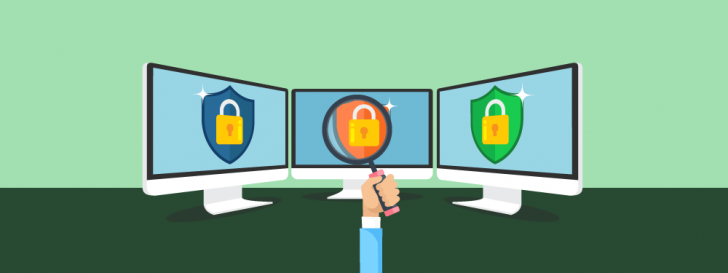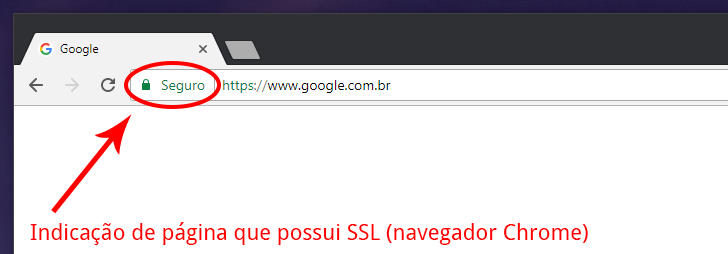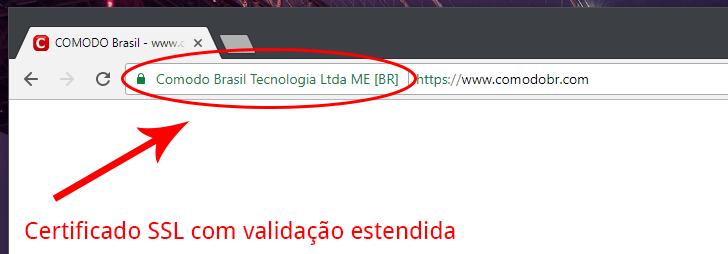

chsyys/Flickr
Getting an SSL certificate for your website is crucial as it enhances credibility for your audience and improves security for data exchanged between the site and its users. Additionally, websites with SSL certificates benefit from better search engine rankings.
Doubts often arise when beginning to study the topic, revealing numerous SSL certificate options with varying prices, ranging from free to thousands of reais based on the type chosen.
What sets the various certificates apart? This article outlines the different types of SSL certificates currently offered in the market. It also explains the suitable uses for each, aiding in selecting the ideal option for a website.
What is the purpose of an SSL certificate?
Before delving into the different types of SSL certificates, it’s essential to grasp the concept behind them. Simply put, an SSL certificate is a file provided by an organization to verify the accuracy of the information it contains (such as the company name and website domain).
The SSL certificate includes encryption keys that are used to secure and protect the information transmitted between the server and the user’s browser, preventing any data interception by third parties.
This function is commonly utilized online nowadays and is crucial for any website that involves transmitting confidential data like passwords and credit card information.
To discover additional information about SSL certificates, refer to the article titled “SSL Certificate: its importance and why your website should have one.”
SSL Certificate Types
Three kinds of SSL certificates are commonly available nowadays: domain validation, organization validation, and extended validation. Let’s get to know these three options.
SSL certificate confirming domain ownership
The domain validation certificate, known as DV (Domain Validation), is widely used by most websites globally. It verifies only the domain, confirming ownership by the site administrator and providing sufficient encryption security for data exchange.
The green lock next to the page address indicates your presence and some browsers show the word “safe” along with the lock. This affordable SSL certificate option is quite popular.


The issuance of this certificate is typically quick due to the automation of the entire process.
SSL certificate authenticated with organizational validation
This certificate, known as OV (Organization Validation), includes verification of company details alongside domain validation. Consequently, the certificate displays information like the company name, city, state, and country.
This information is automatically validated through queries to government databases when issuing the certificate. In certain situations, the certifier might reach out to the purchasing company to verify the provided information.
The browser display resembles a domain validation certificate (green text), but the certificate includes company details that are accessible in any browser.
This kind of SSL certificate may require up to 2 business days to be processed.
SSL certificate with extended validation
EV SSL certificates, also known as Extended Validation certificates, provide thorough validation of the acquiring organization. They are ideal for websites and online stores handling commercial transactions and transmitting sensitive data like credit card details and personal information.
Companies looking to enhance their credibility and security for users can take advantage of the distinguishing feature of having the company name displayed in the navigation bar, which is sometimes green in certain browsers, in addition to the green lock on the certificate.


The general extended validation certificate costs more than the previously mentioned ones. It may take up to 5 business days to issue due to data verification.
SSL certificates for domains and subdomains.
SSL certificates vary based on the number of domains and subdomains they can include. Certificates can be categorized as single domain, multidomain, or wildcard depending on this factor.
SSL certificate for a single domain
The single domain certificate permits usage for only one domain. If you need additional certificates for extra domains or subdomains, you can purchase new single domain certificates. Depending on the number of certificates needed, one of the following options may be more advantageous.
SSL certificate that covers multiple domains
This certificate enables various domains to share a single certificate, with a specific limit on the number of domains allowed, which can differ based on the issuing company. It is possible to check the maximum number of domains supported by the certificate before purchasing the service.
The price of a multidomain certificate can vary depending on the selected validation type, with domain validation being the most affordable option.
Wildcard SSL certificate
This type of certificate, known as Wildcard, can be used for domain validation or organization. It stands out for being usable across all subdomains associated with the main domain, making it suitable for websites with multiple subdomains seeking comprehensive encryption protection.
The browser display will be like domain validation and organization, but the certificate will show an asterisk and a dot before the domain (e.g. *.site.com), indicating it covers all subdomains of that domain.
SSL certificate available at no cost
Google’s announcement regarding the importance of having an SSL certificate for search result rankings has led to a significant rise in the adoption of this technology.
Free SSL certificate options have become available in recent years, with Let’s Encrypt being a widely embraced choice. Let’s Encrypt, an independent organization funded by donations, has issued over 80 million certificates in just over two years. These certificates are solely of the domain validation type (DV). Below are steps to install a Let’s Encrypt certificate on your hosting.
Other projects providing complimentary SSL certificates, like Let’s Encrypt, are gaining popularity rapidly. Many companies, including website building platforms such as Wix and WordPress.com, are now offering SSL as a default feature without requiring any user intervention. Additionally, numerous hosting providers are also providing free SSL certificates to their clients.
We have created a guide outlining the primary methods to obtain a complimentary SSL certificate for your website to assist our audience. Be sure to take a look!
Summary
You had the chance to learn about the 3 types of SSL certificates available today and their distinctions in terms of domain and subdomain coverage. The availability of free SSL certificates has been on the rise, particularly with the emergence of Let’s Encrypt and similar initiatives by companies.
If you want to add SSL to your website, review the certificate choices provided by your web hosting provider. Some are now providing complimentary SSL in their packages. If you don’t have a hosting service yet, visit our website to discover top lodging options available.
Publication date: 25/10/2017 (last updated on 14/06/2019)
